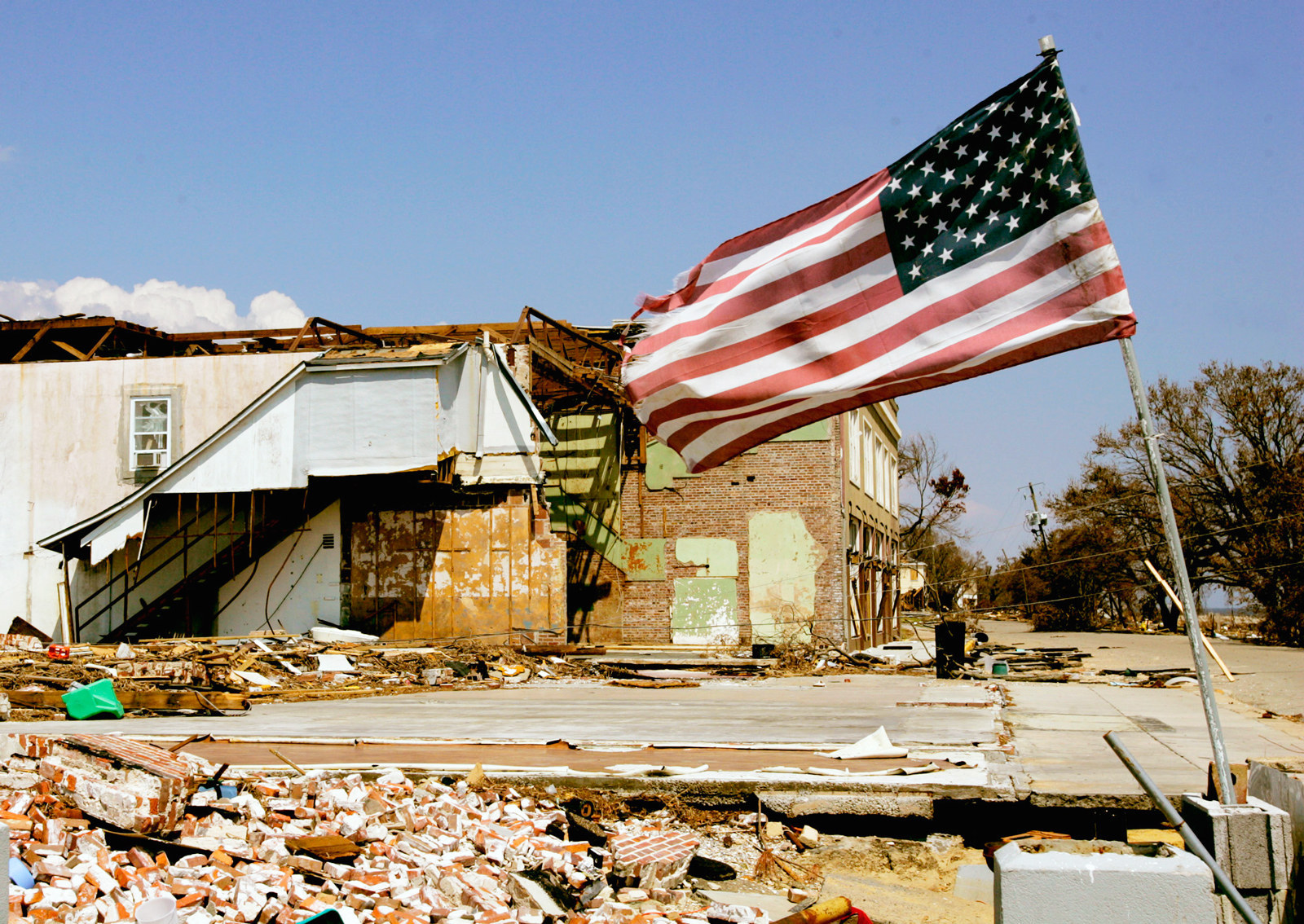PASS CHRISTIAN, Mississippi — Mayor Billy McDonald and his wife rode out Hurricane Katrina in their one-story, ranch-style home about a mile north of the coast.
They paced around their house for hours, watching anxiously as the storm unleashed its worst, blowing away shrubs, carrying off shingles, and toppling trees around the neighborhood. Things seemed bad, but their home was just far enough inland that it escaped serious damage.
The full extent of the destruction wasn’t clear when they finally ventured outside early in the evening, Elaine McDonald said, making their way through still-flooded streets and mounds of tree limbs and debris. It wasn’t long before they crossed paths with a seemingly dazed police officer.
“Mayor,” she recalled the officer telling her husband. “You’re the mayor of nothing now.”
It was true: Hurricane Katrina had almost wiped Pass Christian and much of the Mississippi Gulf Coast off the map. The storm had pushed a nearly 30-foot-high wall of water into the city, lifting buildings from their foundations, reducing homes to piles of rubble, and leaving dozens dead or missing. Pass Christian had no lights, no phone service, no water, and one government building — a fire department facility — left stantding.
To rebuild the city, from virtually scratch, would require a nearly unprecedented recovery effort: billions of dollars in federal funds, thousands of volunteers, and, above all, leadership.
But the storm left Mayor McDonald, who had survived many a political defeat only to rise again and again, a changed man. He was forced from City Hall several months later, his colleagues on the city council fed up with his repeated absences and inability to handle the duties critical to the survival of the town.
To move forward, they said, they had to leave Billy McDonald behind.
He died in March 2010 from what the local daily newspaper called “an extended illness.” The cause or nature of his illness has never been publicly identified by his family or the press.
But his successor, Leo “Chipper” McDermott, identified another cause. “His death certificate should say: Hurricane Katrina."
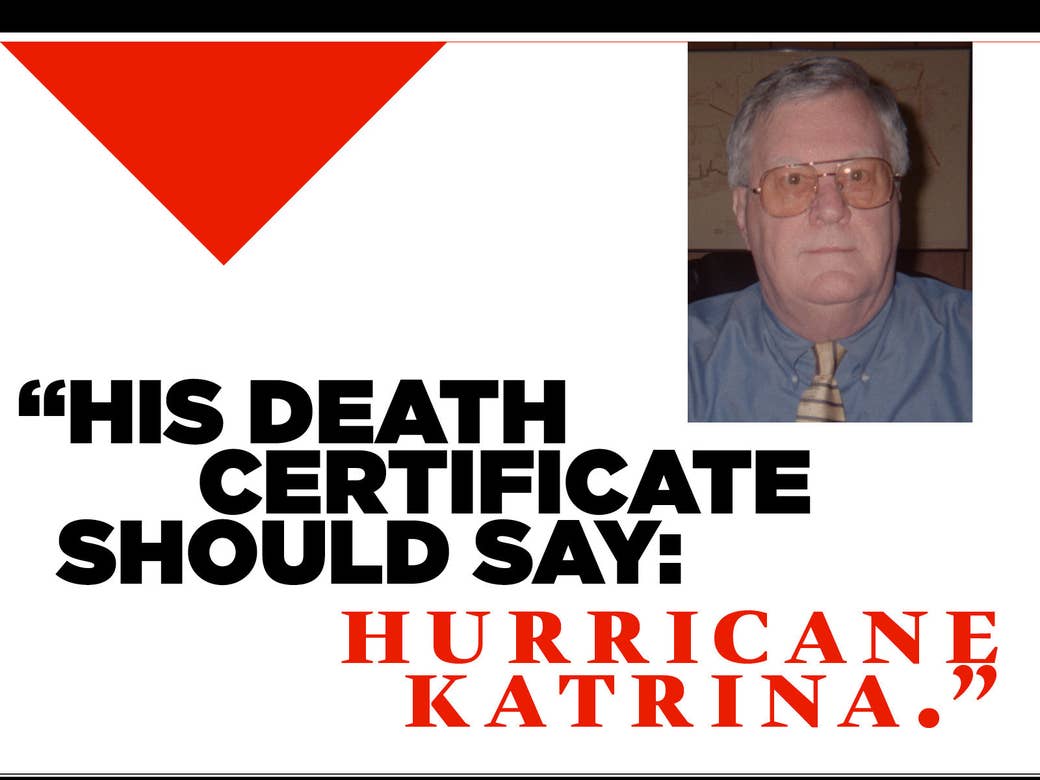
A sleepy community dating to the antebellum era, Pass Christian exists largely because of its proximity to New Orleans and the beaches of the Gulf of Mexico. The wealthy of southeast Louisiana have regularly felt the pull of the town’s shoreline, which sits only an hour east and between the sweeping views of the Gulf and the extravagant homes of historic Scenic Drive.
“New Orleans is the mother of this town,” McDermott said.
An hour’s drive from New Orleans, “The Pass," as it’s known locally, is a compact town, stretching six miles from east to west and about a mile northward from the beach. There are antique shops, stately vacation rentals, and a cluster of restaurants shaded by a canopy of 300-year-old live oak trees. What can’t be found are casinos, setting Pass Christian apart from three neighboring coastal cities that went all-in on the gaming industry more than 20 years ago.
“We wanted our kids to grow up in a small town,” said Tracy Moore, a resident who was raised in the New Orleans suburb of Slidell. “It was a quiet town. Mostly just New Orleans folks who come here on weekends.”
Pass Christian’s identity has also been forged through tragedy, first by Hurricane Camille in 1969 and then Katrina in 2005. Camille, one of the most powerful storms on record, swept away almost everything in its path and killed about more than 250 people, including 150 in Mississippi and Louisiana. The storm produced a 24-foot surge, wiping out the cluster of towns along the Gulf, including Pass Christian, Waveland, Bay St. Louis, and Long Beach. Notable among the losses in the storm was a two-bedroom home on the western end of Pass Christian designed by renowned American architect Frank Lloyd Wright.
At the time, McDonald — then only 33 — lived a half block from an apartment building where some residents shrugged off warnings to leave town and instead hunkered down inside to wait out the storm. According to multiple media accounts, the building was ripped from its foundation and everyone inside — at least eight people — was killed.
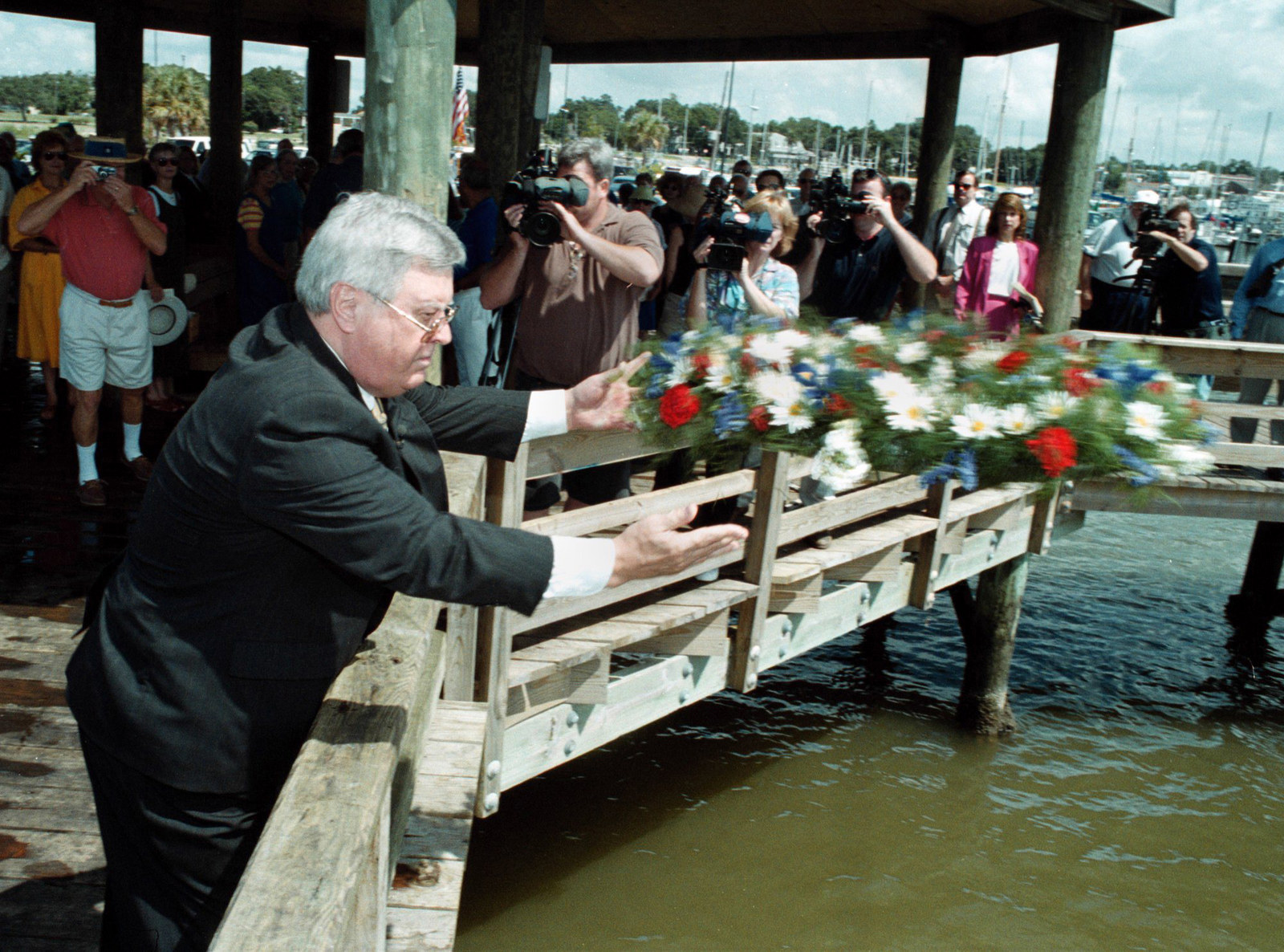
McDonald said he’d headed inland to Jackson before Camille made landfall, but that some of his family members stayed behind in their home. They were among 78 people who drowned. He returned to town the next day. “There were no more landmarks,” McDonald told the Associated Press in 1999 to commemorate the 30th anniversary of the storm. “I honestly didn’t know where I was.”
Pass Christian managed to rebuild. The town went through a population boom over the next 30 years, according to census data, more than doubling its population to about 6,600 in 2000. Over the years, Camille seemed more and more like a distant nightmare. It hadn’t killed The Pass; it made it bigger and stronger than ever before. If Pass Christian could come back from Camille, it could come back from anything.
“We all thought Camille was the gold standard,” former Mississippi Gov. Haley Barbour told BuzzFeed News. “We didn’t think there could be a worse hurricane than that.”
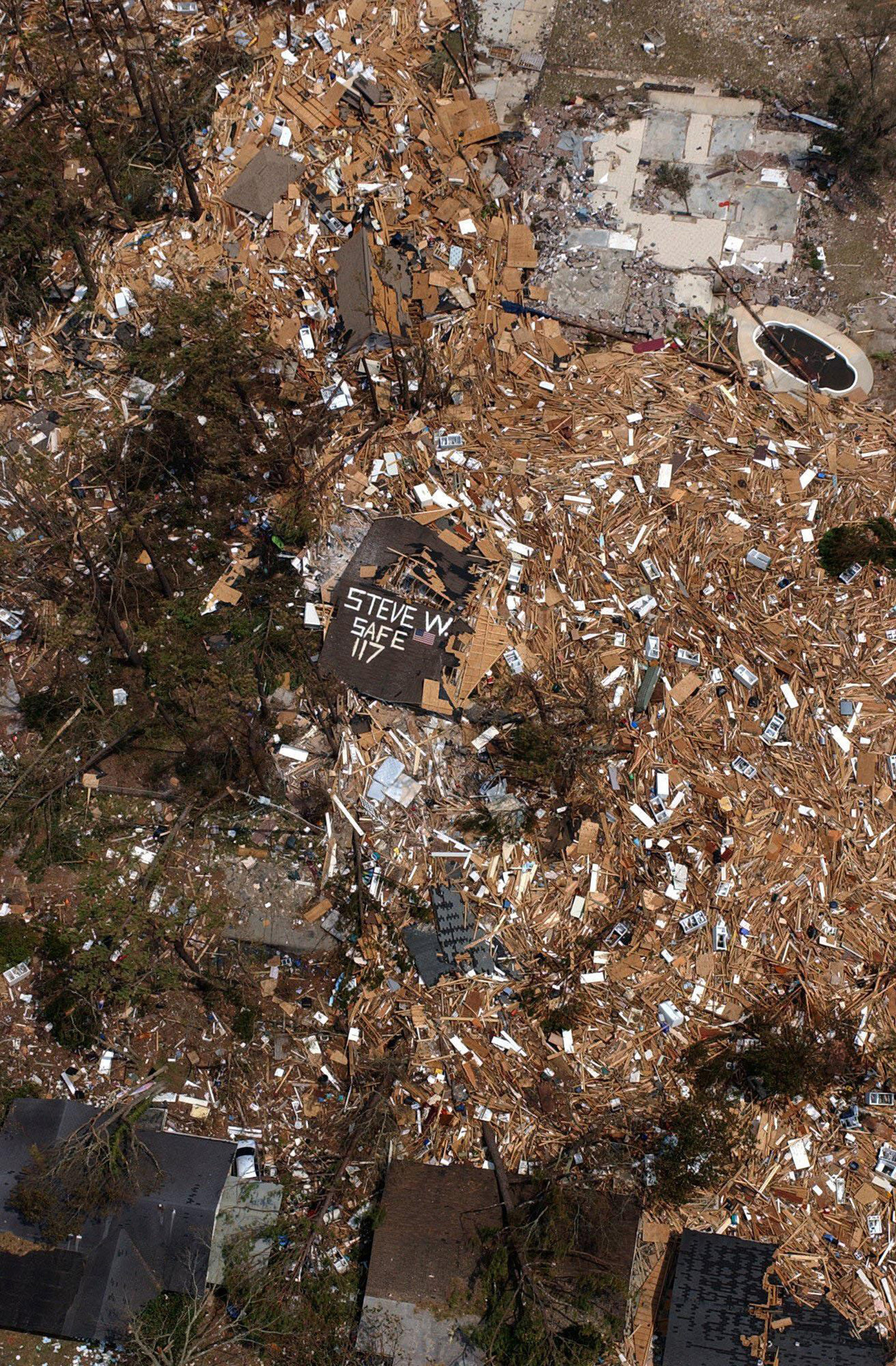
McDonald had been involved in local politics for almost 20 years by the time he was elected mayor of Pass Christian in October 1995.
McDonald entered public office in 1975 when he beat out 18 opponents for a seat on the Harrison County Board of Supervisors. He served in that role until 1986, when he told the Sun-Herald of Biloxi, Mississippi, that he resigned to launch a campaign for Southern District highway commissioner and to devote more time to the presidency of the Mississippi Association of Supervisors.
He came up short in both of his runs for commissioner, in 1986 and 1988. When McDonald returned to office in 1995, as mayor, the Sun-Herald said he displayed “a political resiliency rarely seen.”
Winning the elections was usually the hardest part. It wasn’t an office that required much of its occupant, colleagues and former city officials said. “We would have these council meetings, and it was pretty easygoing,” said Donald Moore, a local attorney and former alderman. “We’d be lucky if 10 people showed up.”
“Before Katrina, it was one of the best jobs in town,” said Joe Piernas, a former city alderman and mayoral candidate. “It was a breeze. This town took care of itself.”
McDonald seemed to enjoy his exalted status around town. He was quick-witted and colorful, the quintessential wheeling-and-dealing Southern politician. He eagerly shook hands, kissed babies, chatted up old folks, cut ribbons, and represented the town at formal functions around the state.
“He was full of bullshit and could talk to anybody,” Moore said. “He had political connections like crazy.”
Under his leadership, Pass Christian experienced a modest run of prosperity. The city got its first McDonald’s restaurant and a shopping center in 1995; built a new bridge over nearby Bayou Portage; replaced a decaying harbor wall with nearly $1.5 million in state and federal funds; and opened a new high school, among other accomplishments.
The Sun-Herald called McDonald “a master at using other people's money to benefit the city” and gave him credit for “guiding the city's steady growth.”
But the clouds gather over the Gulf every summer. Down here, it’s always only a matter of time before the next storm.

In the early morning hours of Aug. 29, 2005, 21 firefighters crammed into Pass Christian’s fire station. The building was meant to hold only five overnight guests, but the situation called for some discomfort.
“The only other time we have everybody on duty is for the Mardi Gras parade,” said Michael Shane Bass, a native of nearby Long Beach and then a six-year veteran of the department. “But this was a totally different animal.”
The eye of Katrina made landfall a few miles west of Pass Christian, near the mouth of the Pearl River on the Louisiana border. The resulting 27.8-feet storm surge, largely believed to be a U.S. record, turned Highway 90 — the divided four-lane road that runs parallel to the coastline — into a river of rubble.
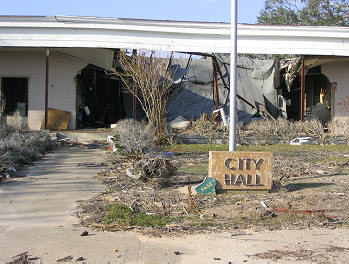
More than 90% of the homes in Pass Christian were damaged or destroyed, city officials said. The storm buckled the old bridge over the Bay of St. Louis, cutting off the main artery into town. The local harbor, where generations of shrimpers had docked their boats, was washed away. Floodwaters rushed into City Hall and the library, which shared the same lot, and forced out more than a dozen police officers who’d stayed behind to wait out the storm. “We went from the 21st century to the 18th century in nine short hours,” McDermott said.
The next morning, Mississippi’s governor climbed into a helicopter for a tour of the coastline. Barbour said he was flown from Gulfport in the east to the western border of the state, a nearly 50-mile stretch of the state along the Gulf.
“It was sickening,” Barbour said, recalling the trip. “The devastation was so unbelievable.”
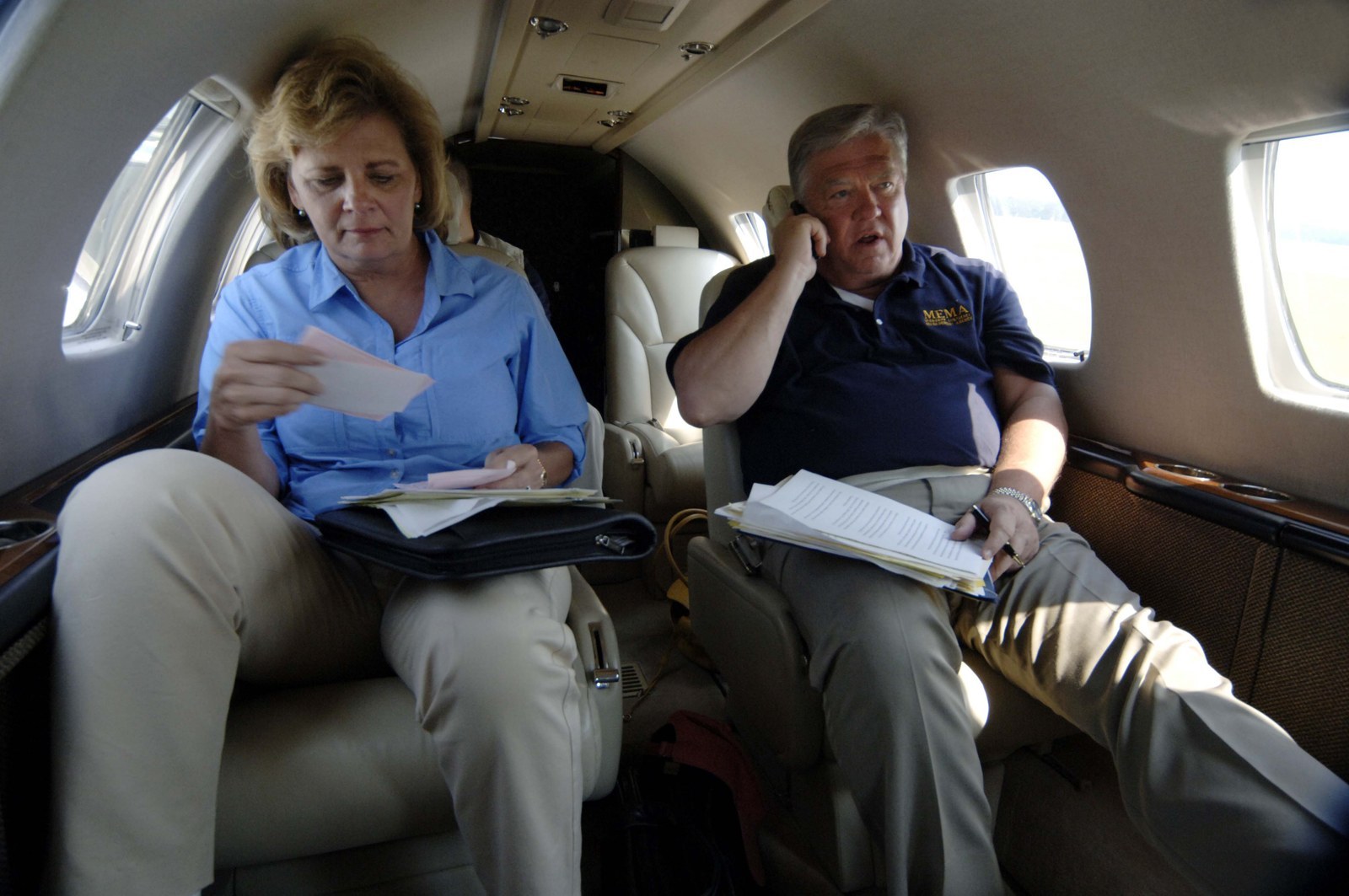
“It looked like to me that an atomic bomb hit the coast,” said Joe Spraggins, who’d officially started as Harrison County emergency management director that Monday. “I had visions of Hiroshima.”
On the ground, emergency responders scrambled to find survivors and set up tent camps around the area where people could get food, bottled water, and information, since there were few ways to communicate without power or cell phone service.
Spraggins started holding meetings twice a day, rounding up the mayors of Harrison County and the county’s board of supervisors. They’d review what happened the night before, plan for the next day, and figure out the needs of their respective communities. By the end of the first week, Spraggins said, “I saw the wear and tear on local officials. They were placed in a difficult situation.”
However, it didn’t take long before everyone noticed McDonald seemed especially overwhelmed by the scale of the catastrophe. A week after the storm, McDonald struggled to sound optimistic despite the destruction in comments to the Chicago Tribune.
“I am a fifth-generation native of this city,” McDonald said, “and this is not my first rodeo.”
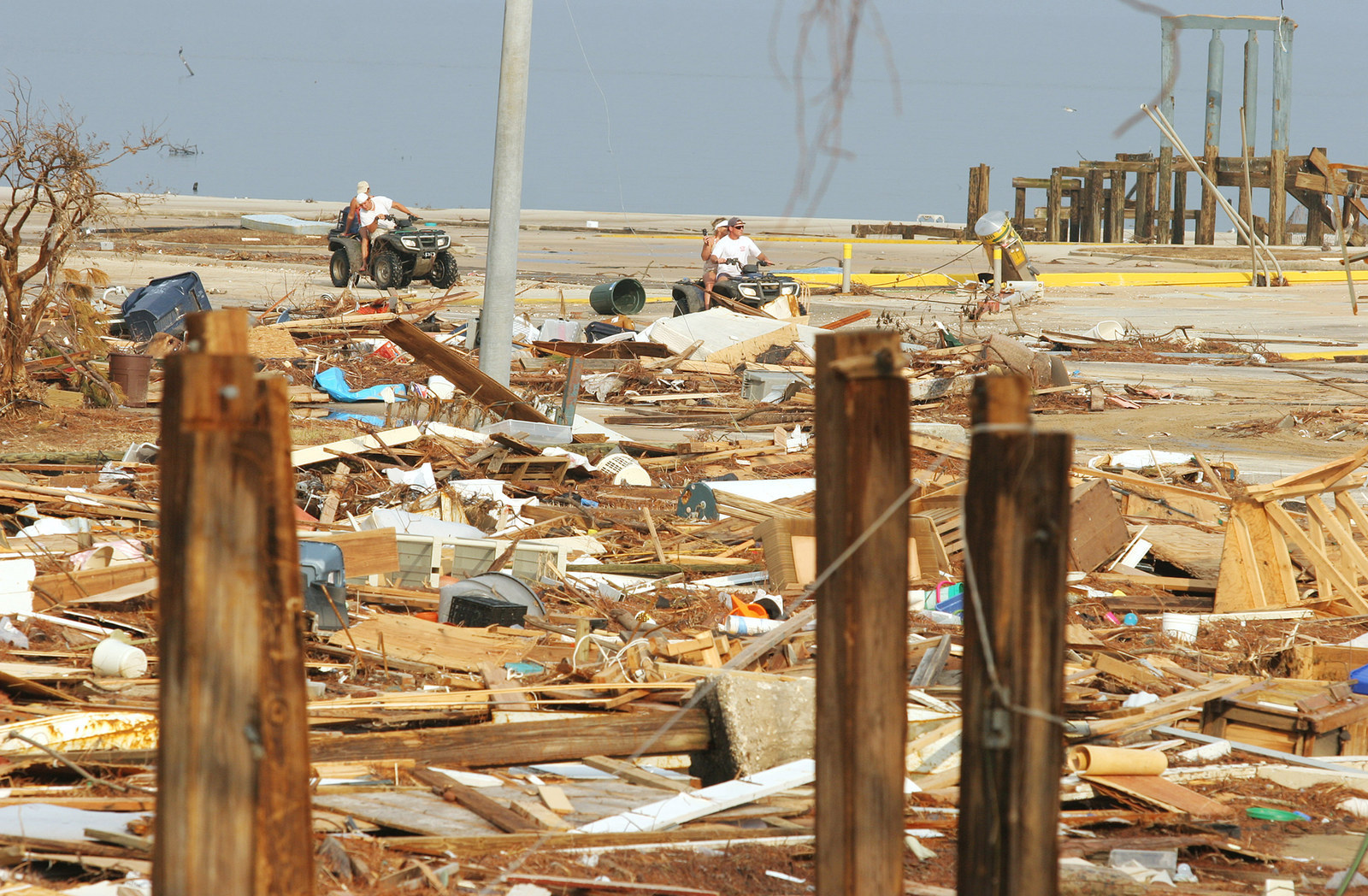
Thousands of volunteers began to pour in to the Mississippi Gulf Coast to help with the recovery. One was Helen Ferguson, a psychologist from Fort Worth, Texas, who arrived with a team of mental health professionals flown in by the Red Cross. Her team spent the first four days in Gulfport before rotating to Pass Christian on Sept. 19, nearly three weeks after the storm came ashore.
“People were pretty traumatized,” Ferguson said. “But right after something like that happens, you’re so busy trying to get to the end of the day, you have so much to do, the full effect often doesn’t hit for quite a while.”
The effects of Katrina didn’t seem to take long to make changes in McDonald, who stayed home with his wife, Elaine, during the storm. He told the city’s aldermen and other public officials that he and his wife left town the day after the storm because her blood pressure spiked and he needed to find medical help. They spent three days in Baton Rouge before returning to Pass Christian, where his old childhood home had been reduced to a concrete slab.
Once McDonald was back in town he started missing meetings, and even when he did attend, “he just sat there and said nothing,” Piernas said.
“I think it took a toll on the mayor that night because he stayed,” said Piernas, who left for Jackson the night before the storm made landfall. “We had a lot of bodies lying around for at least a week. I remember riding around in my truck and thinking, How can we recover from this?”
Within a month, several city leaders called on McDonald to step down or at least take a pay cut. They grew frustrated with him, they said, because they were doing most of the mayor’s work even as he earned a full-time salary of $48,100. The aldermen were paid $8,400 for their part-time roles, even though they were working seven days a week during the recovery effort. The Board of Aldermen named city attorney Malcolm Jones chief administrative officer, and Jones began representing the city at a number of briefings and meetings with other officials.
“We all took turns trying to be mayor,” Moore said. “We were just trying to send him a message to either step up or step down. The storm just sent him over the top. It did a lot of people.”
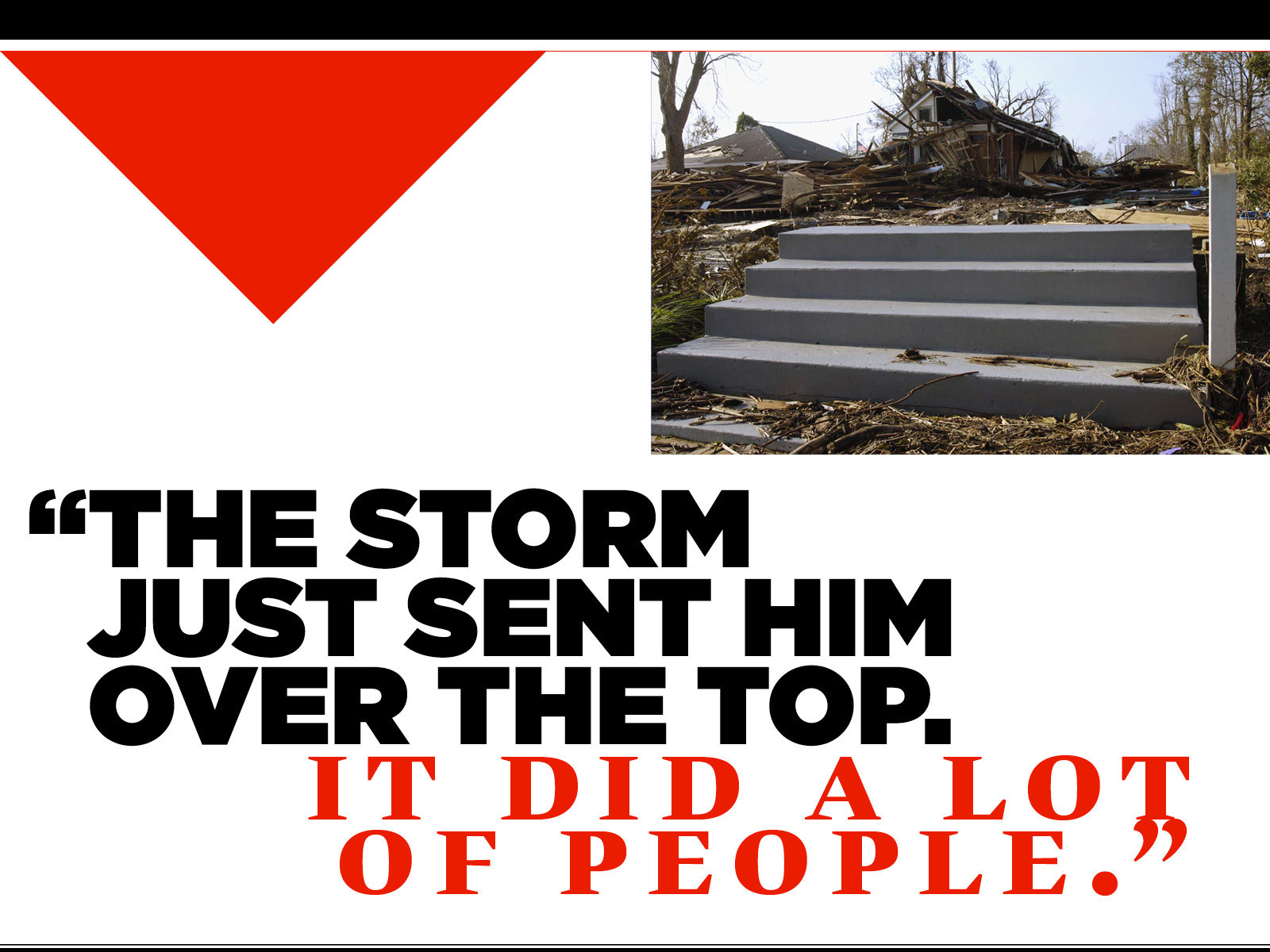
Even today, it’s not quite clear what ailed McDonald. His widow, Elaine McDonald, has largely refused to make extended comments, telling BuzzFeed News recently, “It won’t bring him back.”
She took a lengthy pause. “He didn’t do anything wrong. He was devastated. He just dealt with a lot of things. We both did.”
In a later phone conversation, she allowed that Katrina “certainly attributed to his demise.”
Most of his family members wouldn’t comment, or couldn’t be reached for comment, except for a nephew in New Orleans. “Katrina killed my uncle,” Eddie McDonald said.
In the absence of information, many of his old colleagues and friends guessed at the state of his health — both physical and mental. “I think he got sick from the storm,” said Debra Welch, a recently retired city employee. “Word was he deserted the city.”
“It was more than he could bear at the time,” said Billy Skellie, a longtime mayor of neighboring town Long Beach. “I think he was just overwhelmed. I don’t think he was very healthy and I think that made him kinda ease on up.”
“The mayor was an older gentleman at the time,” said Barbour, who recently released a book on his role in Mississippi’s recovery while he was governor. “He went somewhere when the storm came, and he never came back.”
There was still much to be done.
Pass Christian struggled for resources and media attention in the early days of the recovery, overshadowed by New Orleans and more-populated coastal areas of Mississippi. At the periphery of the nation’s poorest state, Pass Christian lagged behind many of its neighbors.
“Nobody was getting assistance after the storm,” Piernas said. “We had a hard time getting attention because New Orleans was getting all the attention, making the most noise. We were at a standstill.”
In a November 2005 interview with the Washington Post, McDonald echoed those frustrations even as city leaders placed some of the blame on him and his repeated absences.
"Lots of folks don't have flood insurance; lots of folks don't have jobs; lots of folks don't have hope," McDonald told the Post. "We're a hurting place."
Things began to turn around for Pass Christian, Piernas said, after ABC's Robin Roberts, who grew up there, began talking about the plight of her old hometown on Good Morning America.
“Me and her went to high school together,” Piernas said. “She asked me, ‘How’s it going?’ And I said, ‘It’s not. We’re not getting any help.’ She went back home and started talking about us. She was our first breakthrough.”
A day after the storm passed, dressed in a Pass Christian High School T-shirt, Roberts was among the very first to broadcast the plight of the city to a national audience.
“There was a feeling in Mississippi that, on the whole, they were being overlooked,” said Roberts, who will host a Katrina anniversary special on ABC that airs Aug. 23. “And since I was from that area, maybe more so than other people, I understood what people were going through.”

Soon, tent cities were established all over town so residents could get a hot meal, groceries, or other supplies. In mid-October, an elementary school in neighboring DeLisle — which sits back a few miles from the coast — reopened with a visit from President Bush and the first lady. Middle and high school students returned to classes a week later in portable buildings.
Electricity and phone service had been restored to nearly all of the returning residents by the end of October, said Greg Easson, then-director of the University of Mississippi's Geoinformatics Center.
“Now a lot of the old houses were not there anymore,” said Easson, who is now director of the Mississippi Mineral Resources Institute. “But getting all of those main lines back up — it was pretty amazing how fast it actually did come back.”
By the end of 2005, The Pass appeared to be on its way to digging out of the ruins. City leaders could finally envision a future for their battered little beach town.
A future without McDonald.
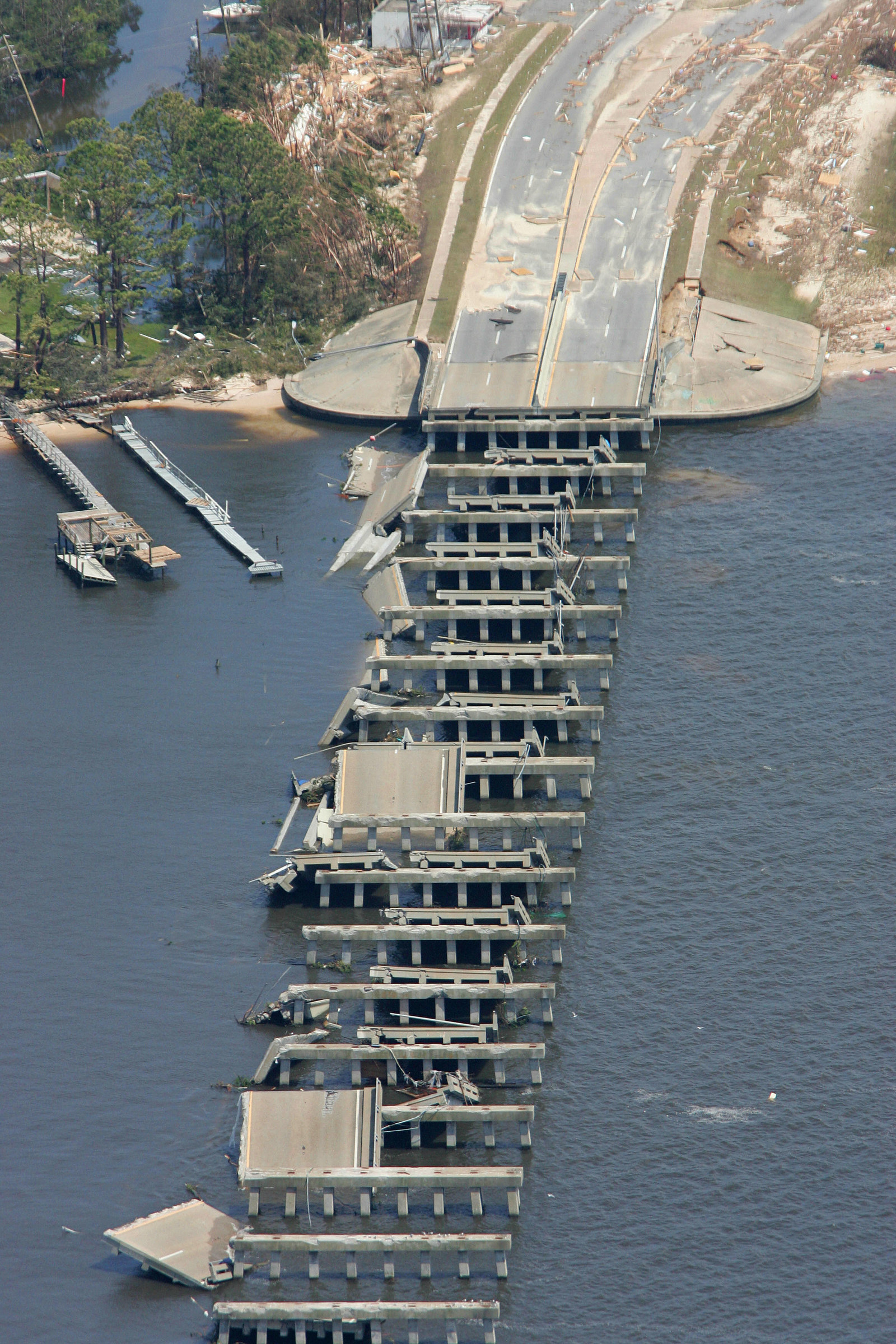
In early December, city aldermen voted unanimously to cut McDonald’s salary by 10% and called his performance “lackluster.” Claiming that he was the victim of politics, McDonald successfully vetoed the proposal.
“This is ludicrous,” McDonald told the Sun-Herald. “They have to realize that I’m elected as mayor by the people, not the aldermen.” The aldermen didn’t back down, promising to hold McDonald accountable for his absences.
“He was sick and he didn’t know that we knew,” Piernas said. “It was hard to put the pressure on him.”
McDonald frustrated the board all over again in April, when he backed out of giving the annual State of the City address at the last minute because of an undisclosed illness. With more than 100 residents in the audience waiting to hear a speech, the aldermen instead gave their own reports about the city’s progress.
"There's not a board member up here who is not willing to work with the mayor if he was here to offer his leadership," then-Alderman Anthony Hall said at the meeting, according to the Sun-Herald. "That's what this town needs the most right now is a leader."
The Sun-Herald’s editorial board took up the campaign to push McDonald out of office in May, urging him to resign because of “his continuing lack of leadership during an unprecedented municipal disaster.”
“Opportunities are being lost every day in Pass Christian due to McDonald’s inadequate, if not inexcusable, performance,” the editorial read. “If he cares more about the city than himself, Mayor McDonald will resign.”
Two weeks later, McDonald offered his letter of resignation to the Board of Aldermen. He said the decision was based on “continuing health issues which have affected my ability to attend the business of the city over the last several months.” He officially left office on July 1, 2006.
McDermott won a special election to replace McDonald later that summer and has successfully held the office since, taking a central role in the city’s rebuilding efforts.
“Chipper is a character,” said Robert Latham, executive director of the Mississippi Emergency Management Agency (MEMA). “Because of his character and commitment, it enabled Pass Christian to come back strong.”
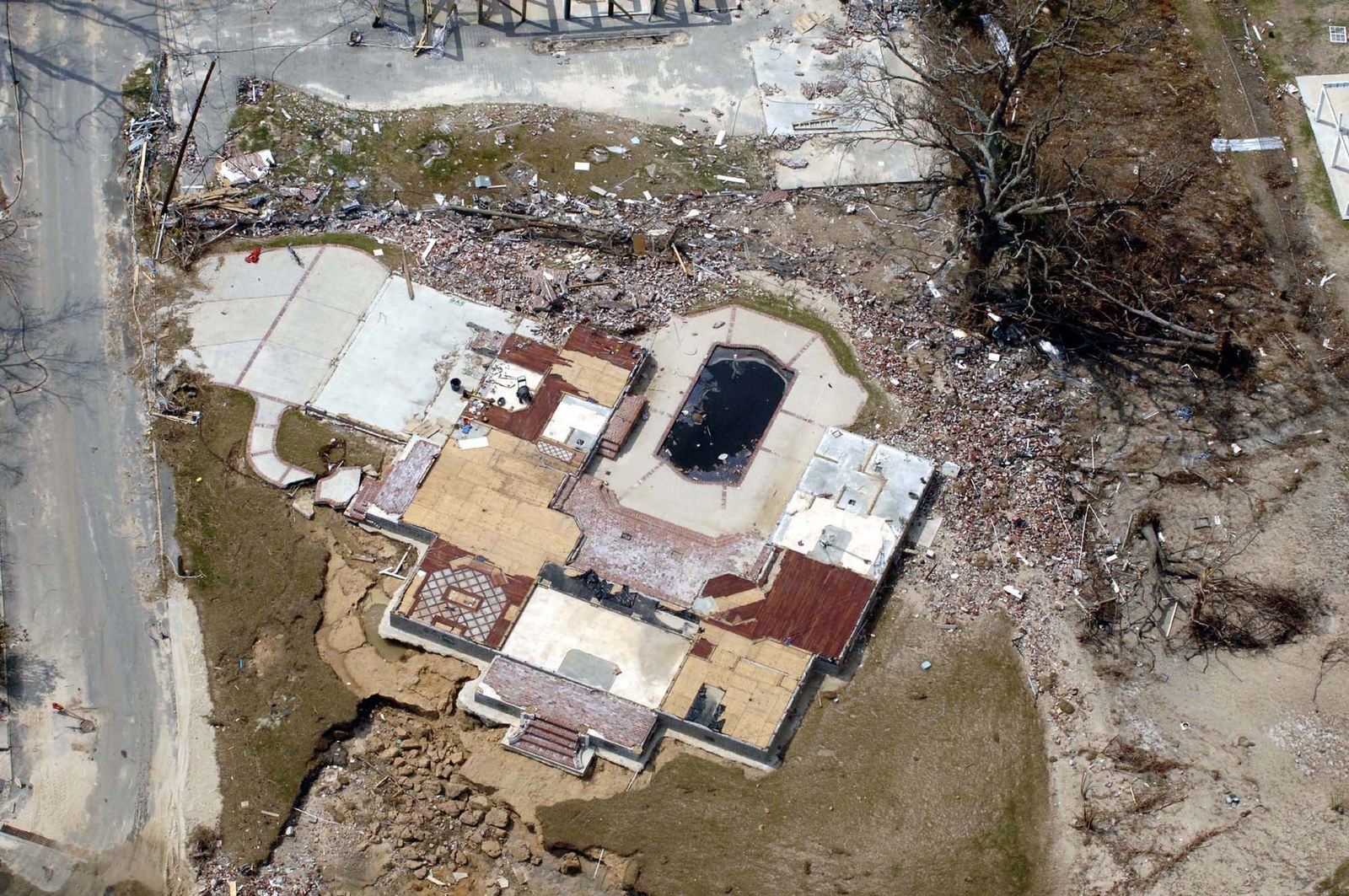
It took a lot more than character and a brash personality to rebuild Pass Christian. It also — if not mostly — took political maneuvering and money.
Latham estimated that a total of more than $9 billion in federal and state funds has been spent in Pass Christian, used for large-scale projects like rebuilding bridges, City Hall, the harbor, schools, and other infrastructure, as well as paying for homeowners and businesses to re-establish themselves in the city.
Most of the larger projects have been closed out, Latham said. But many smaller projects are still undone, including a police annex and Boys & Girls Club building, totaling about $53 million in expected costs.
“You have to believe the coast is stronger now,” Latham said. “Different but stronger and more resilient.”
One of the city’s biggest post-storm victories has been the return of Walmart in the fall of 2009 — a new store opened near the old one, along Scenic Drive and next to Long Beach. It’s roughly the same size, at 150,000 square feet, and employs more than 300 people — 50 of whom worked in the old store, according to a Walmart spokesperson — but it was built a little more inland and at a higher elevation.
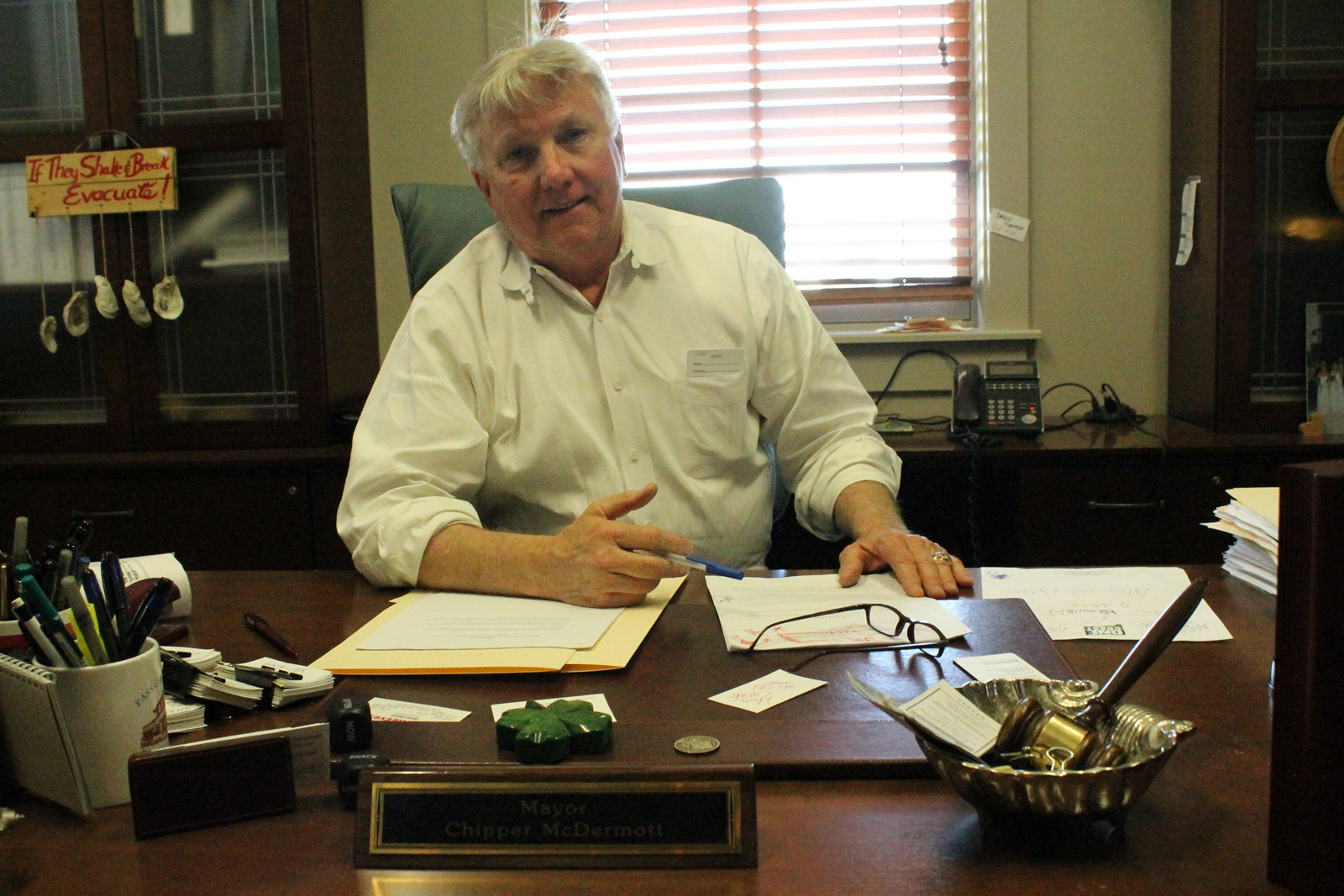
“One thing [McDermott] prided himself on was getting them back in our city,” said Marian Gest, Pass Christian’s city clerk.
McDermott pointed to tax records showing that the city’s sales tax revenue nearly tripled the year after Walmart reopened. The city has also experienced steady population growth since the storm. Census data shows population there dropped from 6,579 in 2000 to 3,993 by 2008. The most recent estimate, from 2013, showed the population was back up to 5,128.
More would’ve returned already, city leaders and real estate agents say, if not for the rising cost of insurance for homes and businesses.
“We’ve got a lot of vacant lots,” said Avra O’Dwyer, a local real estate agent. “But a lot of people that left didn’t return, and want to come back now. And the second-home market is really coming back.”
“There’s so much available land here,” said Jace Ponder, publisher and editor of the Gazebo Gazette, a local newspaper that’s published twice a week. “But when I see those empty lots, I see scars from Katrina.”

Elaine McDonald still lives in that modest ranch-style home about a mile from the coast, in a housing development that filled up fast after the storm. The others came seeking the relative safety of the neighborhood, and paid good money for it.
The blinds were pulled shut along the back of the house, bathing the living room in darkness. A small dog barked incessantly inside the home. Billy McDonald’s widow, who now works at a local funeral home, answered the door on a sweltering May afternoon.
“My son has told me I shouldn’t say anything,” she said. Her eyes turned red. “All I can say is that my husband did the best he could.”
She declined to say more, then closed the door. It was at that home, friends and colleagues say, where Billy McDonald lived out most of the rest of his days after leaving politics.
“I think I passed him once in the street,” said Donald Moore, who lives about a half block from McDonald’s home. “He was almost a zombie, in a catatonic state.”
Said his wife, Tracy Moore: “We never saw him and he lived right down the street. He holed up in that house.”
Billy McDonald died March 17, 2010. He was 73. Most people around town say the cause of death was the same illness that forced him out of office — though no one seems to know exactly what that was.
In the Sun-Herald, he was remembered as “a good politician and storyteller, a man who knew how to work a room.”
McDermott, who called McDonald “as colorful a person as there ever was,” ordered the flags at the double-wide trailer then serving as city hall to fly at half-staff in his honor.
